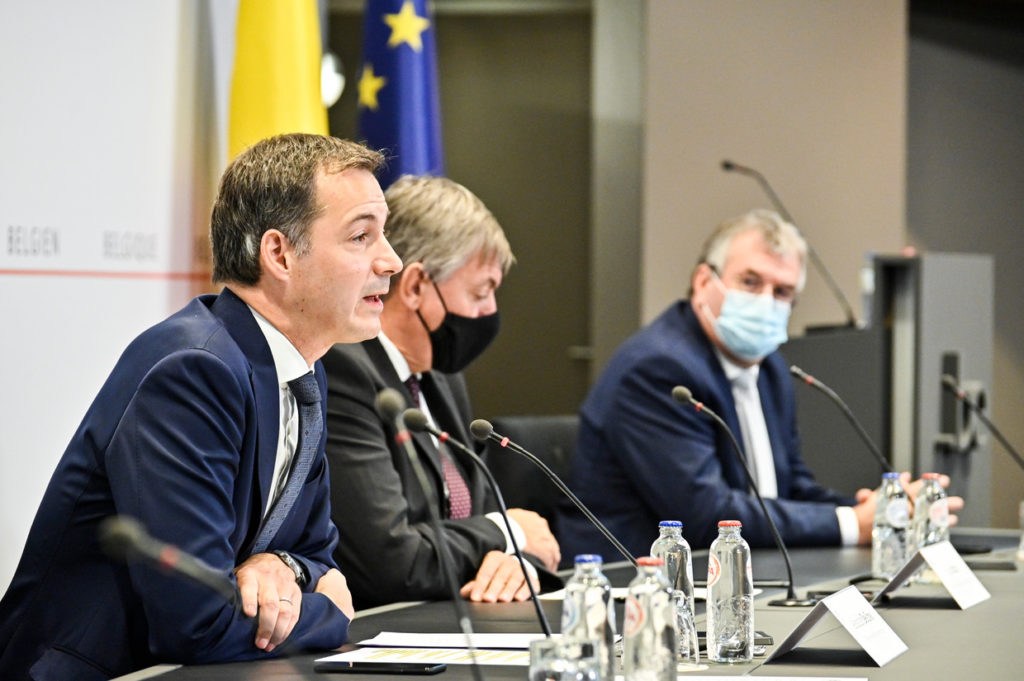Belgium has announced tighter measures for border crossings to curb the spread of the coronavirus during the end-of-year period, Prime Minister Alexander De Croo announced during a press conference on Friday.
"Today, the number of new infections per day is 10 times lower than it was eight weeks ago, because together we followed the rules."
"However, the number is still too high," De Croo said. "We can see that the decline we have seen is now beginning to slow down."
"This could be the start of a third wave, but we can still avoid it," he said. "If we were to relax the rules now, the situation would go in the wrong direction. There is no doubt about that."
"However, today, we are still in control. If we succeed in keeping to the rules, we can avoid that third wave," De Croo said. "Our children are starting a period of school holiday now, but unfortunately the virus is not taking a vacation."
"And so we have decided not to relax the rules yet. We will even tighten them in a number of areas," he said.
Non-residents who want to enter Belgium will have to show a negative Covid-19 test certificate. For people travelling for work, exceptions will be made.
Any kind of travel remains strongly discouraged, with De Croo stressing the importance of not importing the virus.
Related News
- Cheat Sheet: Belgium's latest measures
- Quarantining red-zone travellers not entitled to unemployment benefits
- Belgium's Covid-19 measures won't change when vaccines arrive
Anyone who has been abroad for more than 48 hours will be regarded as a high-risk contact, and will have to quarantine for seven days in addition to correctly filling out the Passenger Locator Form (PLF). Stricter checks on compliance with these rules will be carried out.
The exchange of data between the Sciensano database and the local authorities and police will be improved, allowing better monitoring of the quarantine measures, according to the Ministers-President of the different regions.
There will be stricter controls on teleworking, and companies that do not comply with the rules risk a "severe fine."
There will be stricter checks on whether the measures are respected on public transport.
Celebrate Christmas in a small circle of people, De Croo stressed. People can only invite one extra person into their household, and people living alone can invite two. "Please, keep Christmas small this year," he said.
The curfew in Flanders remains the same, from midnight to 5:00 AM. The curfew in the Brussels-Capital Region and Wallonia is in force from 10:00 PM to 6:00 AM.
The Christmas holidays will not be extended, and schools will reopen on 4 January.
"We will soon have good prospects," De Croo said. "I realise the strict measures weigh heavily, especially with the festive season approaching. But there is light at the end of the tunnel, and we may be able to start vaccinating this year."
It is important to end "this miserable year" with a sign of hope, according to him. "It will be months before everyone has been vaccinated, and before everyone is safe. Maybe not until after the summer."
"So, 2021 will be a year of transition," De Croo said. "But, one with a sign of hope."
"Let us turn the Christmas holidays into a breakwater. Just when we want to have a lot of contacts with these holidays, we should have as few as possible," said Federal Health Minister Frank Vandenbroucke. "That applies to everyone, including children."
"Travelling abroad is a very bad idea. Quite frankly, it is just stupid," said Vandenbroucke. "That is why we are going to have much stricter controls."
"If you are not a legal resident in Belgium, you will have to present a negative test from Christmas onwards," he said. "If you don't have one, you won't get in."
This system will be rolled out in the next few days, according to Vandenbroucke. "This means that people who, in spite of everything, still travel during the Christmas holidays, will notice this when they return."
Maïthé Chini
The Brussels Times

